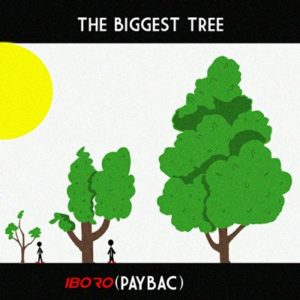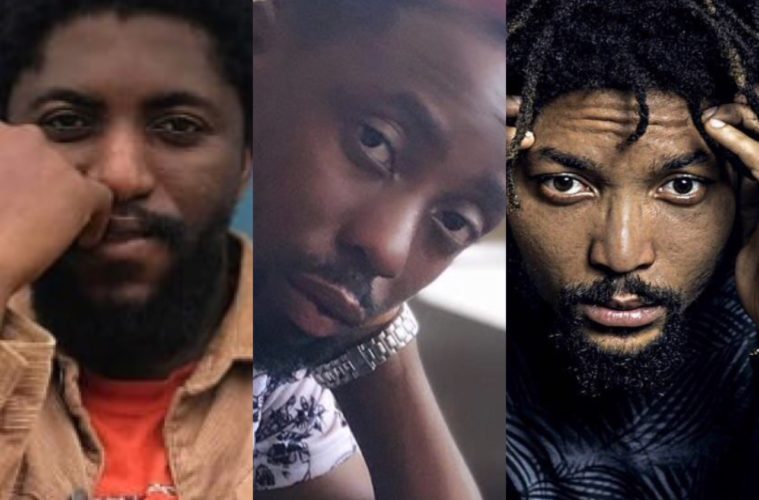1. “I felt that shit”
Twitter’s best quality lies in how it both exposes the dichotomy and emphasizes the confluence between society and individual. While this janusian trait is a flowing undercurrent that many don’t give any thought to, it’s quite easy to spot once you latch onto its prominence.
At one side of its dual core, Twitter functions as a digital diary for users to jot down thoughts and ideas, some of them unfiltered, hence the “I don’t tweet for your attention, I tweet for myself” rhetoric and its other iterations. At the other side, it is a microblog that broadcasts these thoughts to the virtual world, creating a mutual invasion of privacy of sorts between strangers.
For artists, it’s not difficult to draw parallels between releasing music that’s quite personal and being an active Twitter user. Known for placing importance on substance and words, rap often takes this diaristic approach, whether it’s overly personal or not. This means that random people get to peer into (or infer about) the artist’s life and state of mind, and also judge him based on what they find in there – sound familiar? Everyone has an opinion on everything, even other people’s experiences, which is fine, I think.
As much as it values some type of transparency from its auteurs, there’s an array of aims and objectives attached to rap music, such that it can be impossible to prioritize which should be first. Even if this might pose a conundrum, it only shows that rap is multifaceted and rappers have a freedom to make music the way they want to.
In making music the way they deem fit, it’s also pertinent that rappers need to connect with audiences on a tangible level, since it may help in improving the odds that the rapper can capture a sizable following. But even at that, it’s still difficult to guarantee sufficient support for one reason: People choose what they like, most of the time.
Music appreciation is quite the subjective affair. While we can try to dial them down a bit, our impulses and biases run at full speed whenever we listen to music. There’s a myriad of reasons why we like what we like, but like a wise man once surmised: “It is what it is.”
What trickles down directly from this subjectivity is the fact that we all prioritize different things when we listen comes to rap. This affects how we feel and what we like the most about a rap song/project, which inherently plays into each person’s preferences.
2. It’s all Relative
A few weeks ago, American rap superstar J. Cole, put in a stunning shift headlining the CastleLite Unlocks concert which held at the Eko Hotels and Suites. A major reason why many would describe his performance as magical was the raucous acceptance he received during every second he was on stage. Apparently, Cole himself was surprised at the amount of fanfare he elicited – whether doubling back to older songs in his catalog or performing newer songs from his latest album KOD, which was just a week old at the time, fans rapped every word of his songs back at him.
As with any situation related to foreign rappers receiving surreal reception from Nigerians, there’s a dark cloud loaded with criticism aimed at Nigerian rappers that is primed to pour out afterwards. J. Cole successfully headlining a show in Nigeria was the needed element of agitation, and boy, did it rain fire and brimstone on Nigerian rappers, again.
Usually, in the various iterations and arguments in favor of “Nigerian rap is dead,” there’s an ambiguity at what these detractors really want corrected, because it’s obviously not for a dearth of capable rappers. With Nasty C’s freestyle, it was lack of skill. With M.I’s “You Rappers Should Fix Up Your Lives,” it was laziness and lack of visibility. Reasons float around, but since the heat map is all over the place and unconvincing, it’s easy to catch a more prominent trait; hypocrisy tinged with the good ol’ case of double standards.
This time around, though, following J. Cole’s earth moving show, the generally agreed upon problem to make their point stick was: Nigerian rappers don’t make relatable music. I mean, Cole did move a crowd halfway around the world from his base because his music is relatable, so therefore, problem solved?
A significant part of J. Cole’s enamor is that his music not only mirrors his life, but it also rubs off on ardent fans, so much so that living with it is a way of life for many of his fans, this writer included. This means that Cole’s music gets to play a significant part at momentous point in life – the highs and the lows – for those who hinge on every word of his songs. But then, Cole’s music doesn’t perfectly encapsulate relatability as much as it does access.
Don’t get me wrong, J. Cole’s music is relatable to those who find it so. But the ease in finding a J. Cole supporter is the same ease in finding a J. Cole detractor, and it all plays into the simple fact that we like what we like. For as many who find Cole’s open approach to making music endearing and assuring, there’s quite the number that find it boring and corny. No matter what set you belong to, though, it’s irrefutable that Cole’s music is very open.
The relationship between accessing a rapper’s music and relating with it largely depends on the listener. It’s quite impossible for an artist to envisage the extent to which their music resonates, all they can control is how they convey their thoughts and experiences in their music. As humans drawing inspiration from a unique combo of their surroundings, personal ideologies and experiences, every rapper’s output is idiosyncratic in its own way. Even when tackling themes that many may consider universal, nuances and chosen aesthetics differ from rapper to rapper.
A lot of the time, these differences in approach collide with our pre-existing notions, playing into how we judge and also if we can/want to relate to the rapper’s music. With such a skewed dynamic, it takes awareness for listeners to realize that not every rapper will be able pander to their preferences. This means that we need to juggle the dissonance of personal expectations versus what a rapper presents, without necessarily dropping the standards for what quality rap music is.
3. Find Better Slander
Having the same effect J. Cole had on the Eko Hotel crowd is on the bucket list of many rappers, but J. Cole wouldn’t have reached these heights without making music that reflects him AND a fanbase that’s ever willing to insert his music into their routine, even with the varying degrees of situational disparities. The number of Nigerian rappers that can lay claim to “Eko Hotel” support can be counted on one hand.
While the recent gist suggests that Nigerian rappers aren’t reflecting enough of themselves in their music to make it compelling for Nigerian listeners, recent evidence still suggests that Nigerians aren’t exactly willing to cut Nigerian rappers some attention. Besides, how do you decide that music is not relatable if you’re not paying attention to it? Hypocrisy much.
For many Nigerians, the truth is that there’s an implied superiority which leads to an arms wide open approach when it comes to foreign rappers. When it comes to Nigerian rappers, though, not so much – there’s always an extra layer to parse and scrutinize. I won’t be one to not admit that the overall quality of Nigerian rap music can always improve, but it’s not so terrible as to be constantly ridiculed, even for relatability of all things, in fact.
The ninth commandment of poetry in Adam Bradley’s book on the mechanics of rap, titled Book Of Rhymes: Poetics Of Hip-Hop, succinctly explains how a rap song always has a concept, be it complex or frivolous. By extension, this means that with every written and recorded verse released to the public, the rapper shares himself with listeners, whether it’s implied or calculated. So, it’s less of a question of giving and much more on the reception part.
As explained earlier, relating with a rapper is not a linear algebra. If foreign rappers with the wild differences in environment and context can gain traction in Nigeria, how much more those closer telling their own stories of a familiar surrounding.
For a middle class chap who was born and raised in the south western part of Nigeria, totally relating with the street tales of a rapper from the south south like Erigga is a null hypothesis. But I can very much appreciate and enjoy the grimy imagery he often conjures within his rhymes.

One of this year’s best albums is Paybac’s The Biggest Tree, a piercing look into the rapper’s life through his struggles with depression. In a conservative society where mental health issues are addressed with a stigma, The Biggest Tree offers solidarity and a guiding light for many who might be rowing the same boat. Not everyone will relate, but the access to Paybac’s life through his music is irrefutable. Already operating within a genre that’s ridiculed, Paybac’s opus getting overlooked by the mob is a given.
There are a couple of Nigerian rappers telling their stories through song, it’s just convenient for many to go Ray Charles to it because it won’t suit the “unrelatable, unskilled” narrative.
It’s okay to ask for better music and more visibility from Nigerian rappers, but when demands are warped in double standards and bereft of much needed support, it’s all just noise, and it distracts the rappers themselves and those who (really want to) support them. Congratulations, though, our hypocrisy did cross into 2018. Till the next time a hip-hop debate breaks on Twitter.


